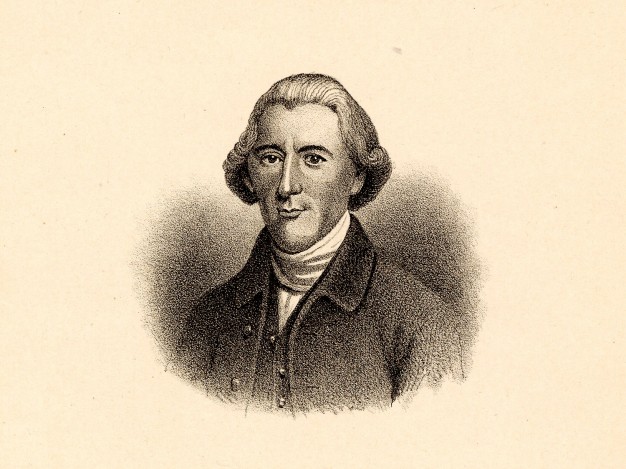Musings on Manuscripts – A Testament to Thomson
In his biography on Charles Thomson (1729-1824), historian J. Edwin Hendricks noted “the Enlightenment in America was not wholly confined to the advancement of useful knowledge toward material ends” (Charles Thomson and the Making of a New Nation, 1979, pgs. 181-182). Thomson also contributed to the advancement of useful knowledge toward spiritual ends. Through his pioneering biblical translations, undertaken after his life in politics, Thomson was the first person to translate the Septuagint—the Greek translation of the Old Testament—into English, and the first American to translate the New Testament.
Born in Londonderry, Ireland in 1729, Thomson emigrated to the American colonies at age ten. He was orphaned on the voyage; his mother died prior to the trip and his father died tragically at sea during the journey. Despite, or perhaps because of, these hardships, Thomson threw himself into his studies and developed a keen interest in knowledge and learning.
Thomson was educated at an academy in New London, Pennsylvania, where he was taught by Presbyterian minister and classical scholar Francis Allison. Thomson learned Latin and Greek from Allison, and was influenced by his tutor’s religious beliefs. After leaving New London, Thomson became a member of the First Presbyterian Church in Philadelphia, where he eventually served as secretary, treasurer, and elder.
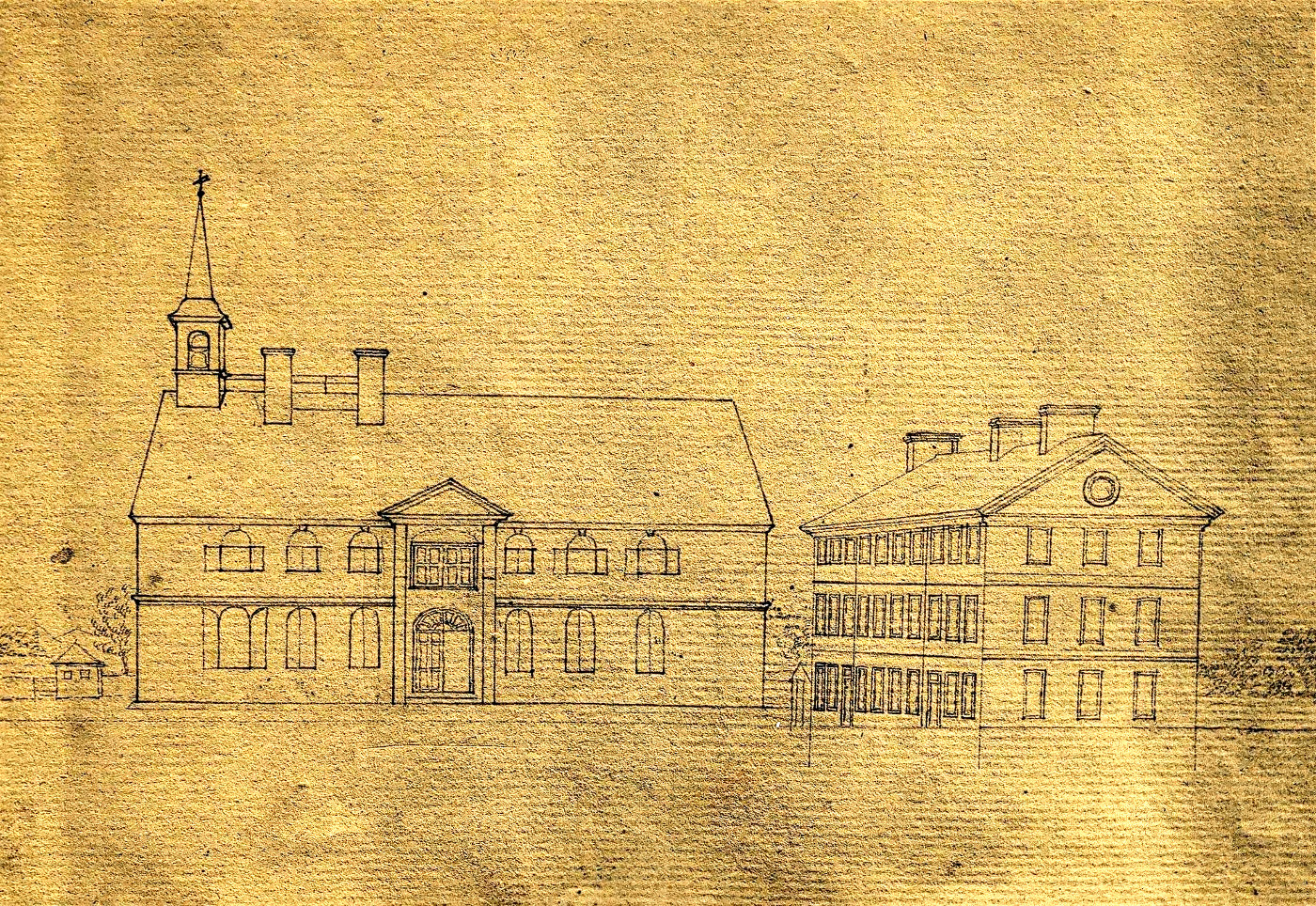
Also at this time, Thomson became active in Philadelphia’s intellectual and political scenes. In 1750, with the influence of his friend Benjamin Franklin, Thomson was appointed a tutor in languages at the Academy of Philadelphia. He also participated in two of the city’s intellectual societies, the Young Junto and the American Philosophical Society (APS). At APS, he served as corresponding secretary. However, it is his position as another secretary for which he is best known. From 1774-1789, Thomson served as secretary of the Continental Congress.
Upon retiring from politics in 1789, at age 60, Thomson devoted himself to studying the Bible in Greek. He acquired a 1665 copy of the Septuagint edited by the English theologian John Pearson. When New Testament writers quoted Scripture, they used the Septuagint, more often than they used Hebrew sources. In order to better understand the Greek text himself and to share his work with an American audience, Thomson saw the merit in translating the Septuagint into English for the first time.
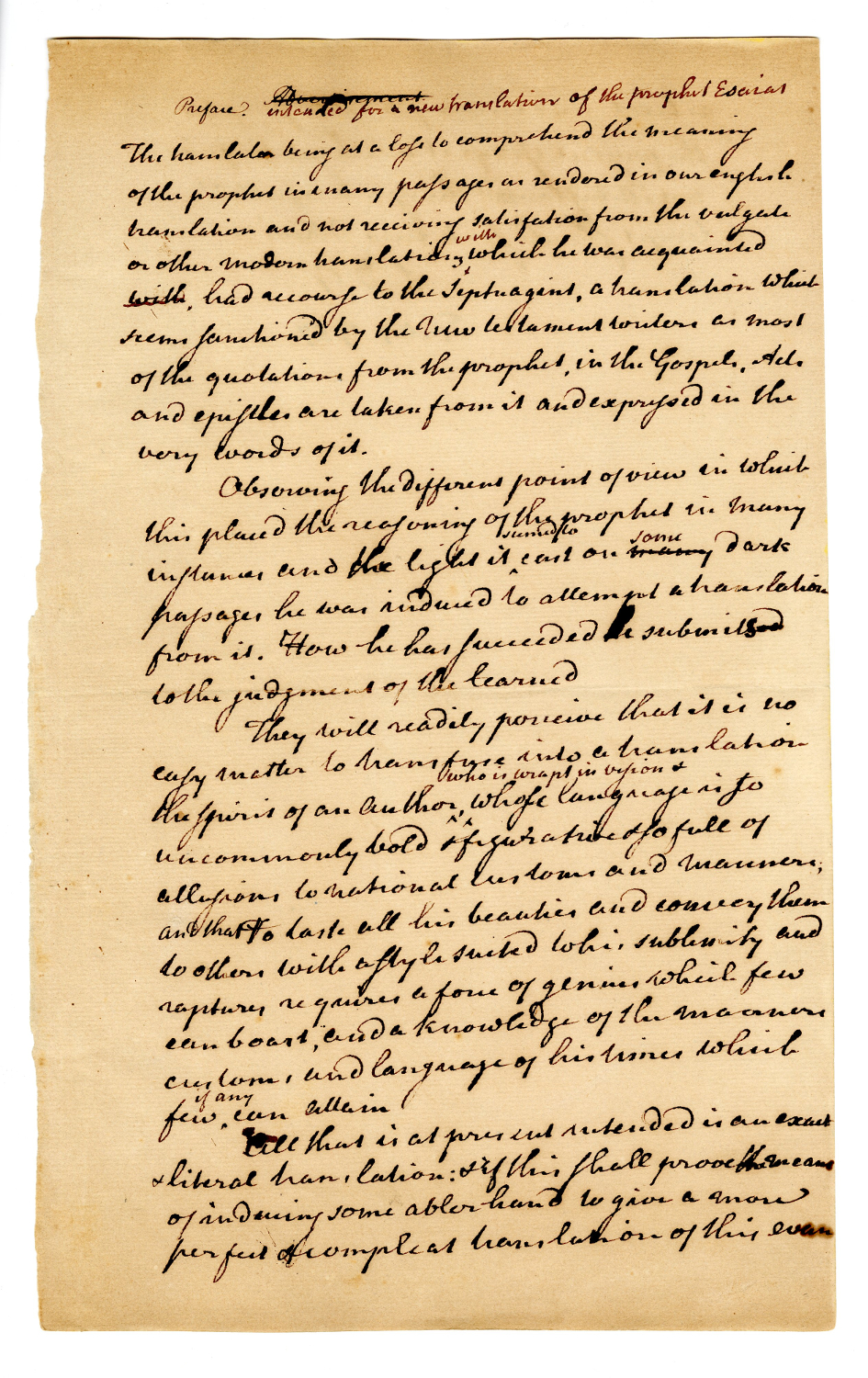
Thomson worked on the translation for many years. Translating is difficult work, as he noted in an introduction to the Old Testament book relating to the prophet Esaias [Isaiah]:
[I]t is no easy matter to transfuse into a translation the spirit of an author who is wrapt in vision and whose language is so uncommonly bold and figurative and so full of allusions… [translation] requires a form of genius which few can boast, and a knowledge of the manners, customs, and language of his times which few if any can attain.
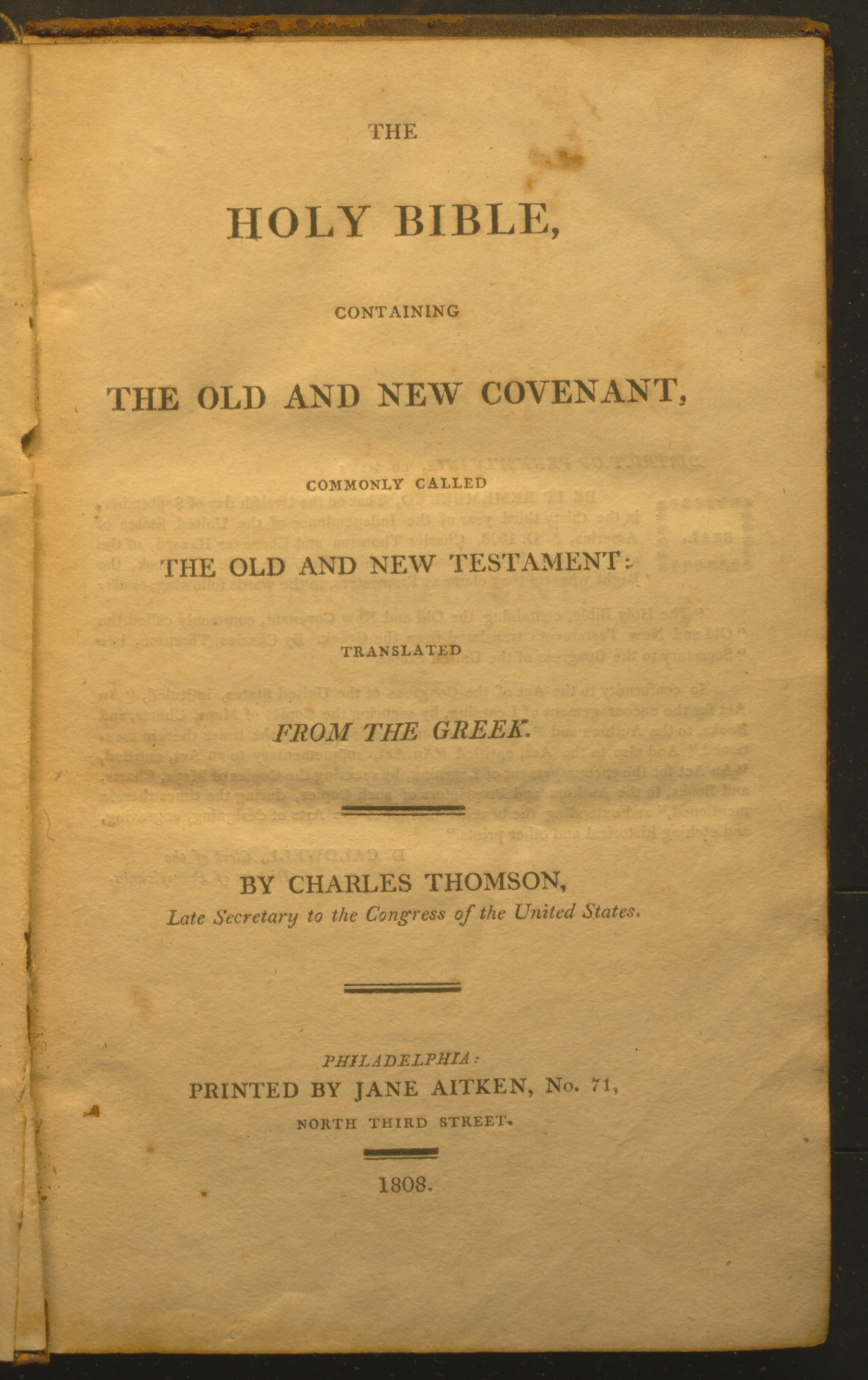
Thomson completed his translation of the Bible, both Old Testament and New, in 1808. His rendition is titled The Holy Bible, Containing the Old and New Covenant, Commonly Called the Old and New Testament: Translated from the Greek. Only a thousand copies were printed; most went unsold and ended up as scrap paper. The APS has an incomplete copy of the work, possessing the first three volumes of the four-volume set.
The APS also has a fascinating manuscript related to the work: Thomson’s “Notes on the New Testament,” which he compiled while working on the translation. This manuscript consists of translation notes and commentary on various biblical verses.
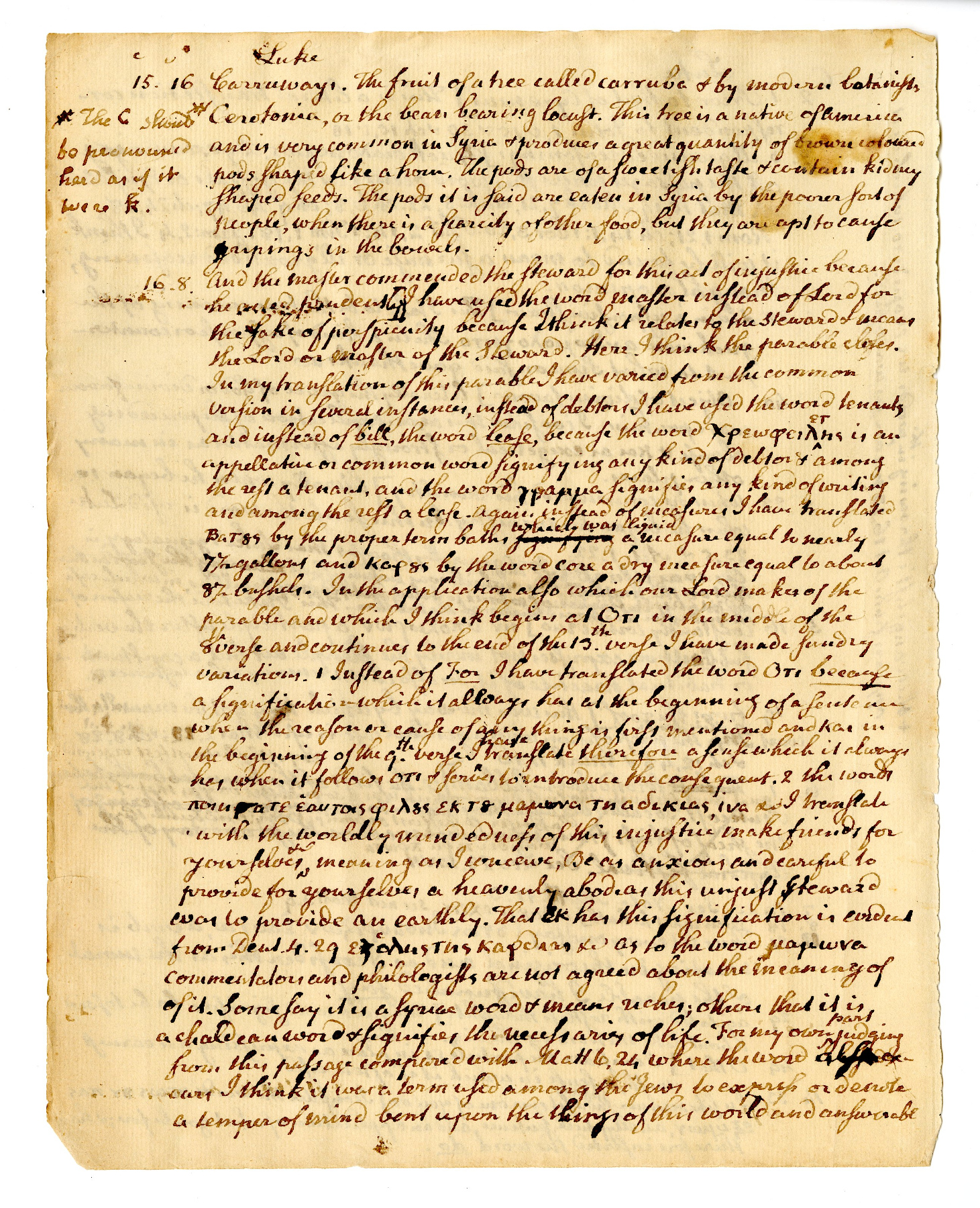
For example, Thomson concluded the parable of the unjust steward in Luke’s gospel with a well-known phrase and a brief bracketed explanation. He rendered Luke 16:13 as: “No man can serve two masters…Ye cannot serve God and mammon [a worldly temper].” In the manuscript, he explained how he arrived at a translation for the word “mammon:”
As to the word μαμωνα, commentators and philologists are not agreed about the meaning of it. Some say it is a Syriac word and means riches; others that it is a Chaldean word and signifies the necessaries of life. For my own part judging from this passage compared with Matt 6.24 where the word also occurs I think it was a term used among the Jews to express or denote a temper of mind bent upon the things of this world and answerable to the term worldliness or worldly mindedness or worldly temper which I have translated it.
In addition to the four-volume translation of the Bible, Thomson wrote A Synopsis of the Four Evangelists: Or, A Regular History of the Conception, Birth, Doctrine, Miracles, Death, Resurrection, and Ascension of Jesus Christ in 1815. In this work, he weaved the four gospels into one text by order of the “dates, events, and circumstances” of the life of Christ. As we are currently in the advent season, and with Christmas approaching, it is appropriate to end on his rendition of the Christmas story (Luke 2:8-14)
Now in that country there were shepherds in the open field, tending their flocks by turns, during the night watches. And lo! An angel of the Lord stood by them, and a glory of the Lord shone around them; at which they were greatly affrighted. Whereupon the angel said to them, “Be not afraid; for lo! I bring you glad tidings—matter of great joy, which it will be to all the people—that to you there is born this day, in the city of David, a Saviour, who is Christ—the Lord: and this shall be the sign for you—Ye will find a babe swathed, lying in the manger.” Then suddenly there was with the angel a multitude of the heavenly host, praising God and saying, “Glory to God in the highest [heaven], And on earth, peace! Good will among men!”
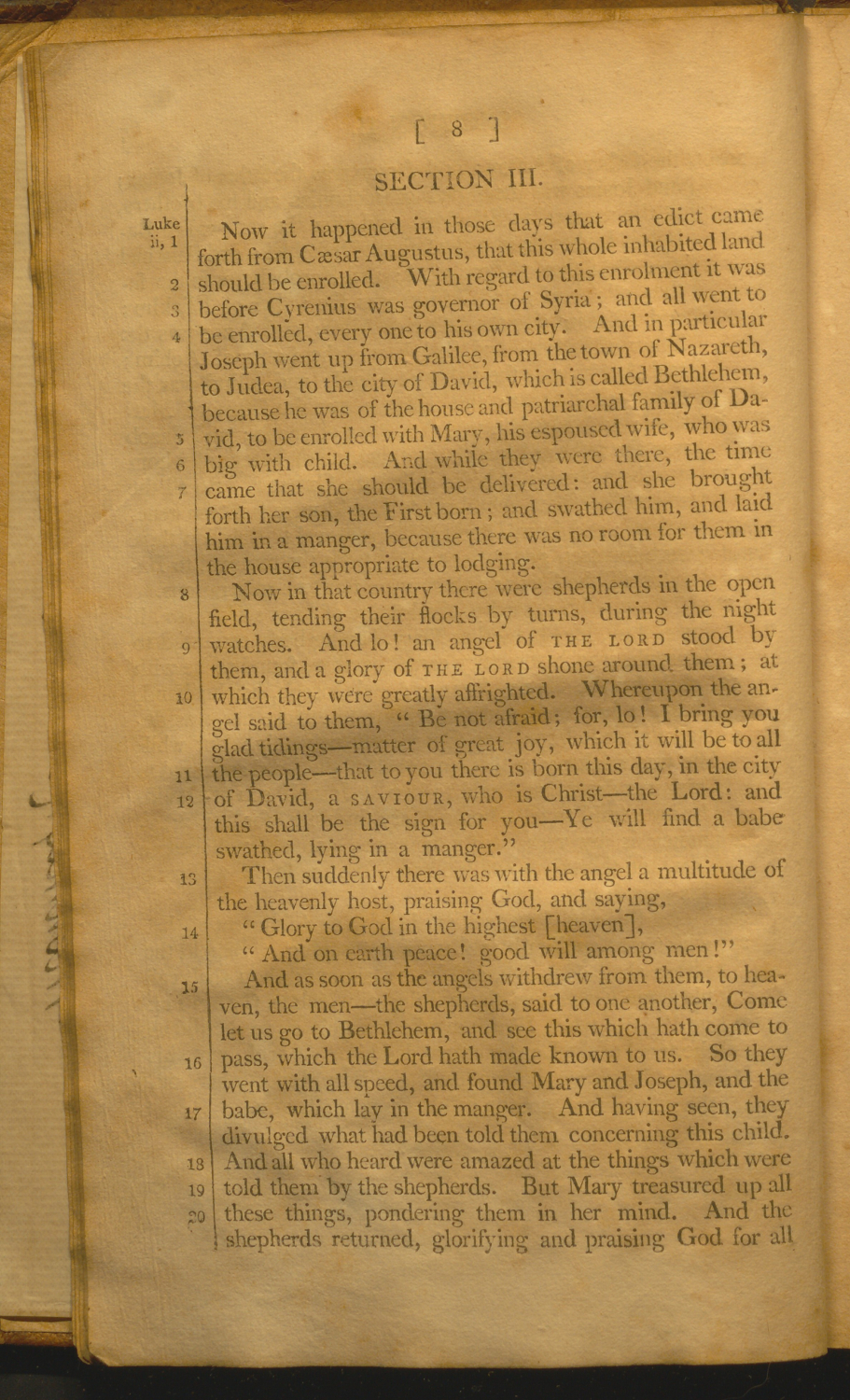
Here endeth the blog. Happy Holidays!
Charles Thomson was a great, great, great, great uncle of George Vaux X (1908-1996), and some manuscript materials relating to his translation of the Bible have survived and are held at APS in the Vaux Family Papers (Mss.Ms.Coll.73). Currently being processed, the collection is large and expansive and contains fascinating insights on the history of the early American republic, Quaker history, and family history. To learn more about the Vaux Family Papers, please see the finding aid here.


